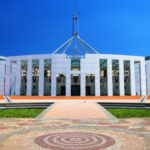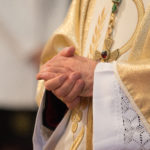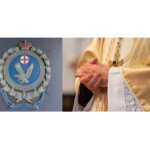The Crime of Concealing a Child Abuse Offence in New South Wales

The leader of the Hillsong Church, Brian Houston, has been charged with concealing a child abuse offence perpetrated by his father, Frank Houston, in the 1970s.
Brian Houston is a personal friend of the Australian Prime Minister, Scott Morrison, who is a member of the worldwide megachurch.
The prosecution follows a two year investigation by the NSW Police Force, which was triggered by The Royal Commission into Institutional Responses to Child Sexual Abuse.
Frank Houston’s crimes against young boys
The Royal Commission heard evidence from one of Frank Houston’s victims, Brett Sengstock, who has since waived the anonymity provided to him.
The Commission also heard evidence that Frank Houston admitted the abuse which took place in Australia and New Zealand in the 1970s.
Frank Houston was a Pentecostal Christian pastor in the Assemblies of God who founded the Sydney Christian Life Centre, which eventually merged into Hillsong Church.
He retired before the allegations of abuse became public, and died in 2004. He has been accused of sexually abusing nine boys.
Brian Houston is currently in the USA where he has been for several months, despite international border closures due to COVID.
Police allege he had information relating to the historical sexual abuse, but failed to bring it to the attention of authorities..
The Hillsong Church has released a statement asserting that Brian Houston “is incredibly grieved for the victims and the hurt and pain that the criminal actions of his father”, and that “[i]t is an indisputable fact that Pastor Brian is not a perpetrator of abuse, has never been accused of abuse, and took immediate action to expose and stop a child abuser.”
Mr Houston will face the Downing Centre Local Court on 5 October 2021 to answer the accusation.
The offence of concealing a child abuse offence in NSW
Concealing a child abuse offence is a crime under section 316A(1) of the Crimes Act 1900, which carries a maximum penalty of
- 2 years in prison where the maximum penalty for the offence concealed was less than 5 years, or
- 5 years in prison where the maximum penalty for the offence concealed was 5 years or more.
To establish the offence, the prosecution must prove beyond reasonable doubt that:
- You were an adult,
- You knew, believed or ought reasonably have known that a child abuse offence had been committed,
- You knew, believed or ought reasonably have known that you had information which might be of material assistance to arrest, prosecute or convict the offender,
- You failed to bring the information to the attention of a NSW police officer as soon as practicable after you obtained it, and
- You had no reasonable excuse for your failure.
The definition of ‘child abuse offence’ covers a wide range of crimes against persons under 18, including:
- Serious assaults,
- Sexual offences such as sexual assault, sexual touching, sexual act, grooming, procuring, child abuse material and child prostitution, and
- Failing in parental responsibilities to care for a child, as well as abandoning or exposing a child.
‘Information.. [of] material assistance’ is not defined by the Act, and is a matter of fact to be determined by the court.
You had a ‘reasonable excuse’ for not reporting the information to police if:
- You believed on reasonable grounds that police already had the information,
- You reported the information through other over legislative mechanisms such as those in the Children and Young Persons (Care and Protection) Act 1998, or the Children’s Guardian Act 2019, or Part 3A of the Ombudsman Act 1974 before it was repealed, or you believed on reasonable grounds that another had reported it in that way,
- You had reasonable grounds to fear for the safety of any person if you were to report the information,
- You were under the age of 18 when you obtained the information
- The alleged victim was an adult at the time you obtained the information, and you believed on reasonable grounds that he or she did not want it reported, or
- The information related to an assault at a school, and:
- It resulted in no more than a minor injury,
- The parties were both school students under the age of 18 years
- You were a member of staff at the school, and
- You took reasonable steps to report the information to the incident reporting unit in the case of a government school, or the principal or governing body in the case of a non-government school.
The reporting of information referred to in the section does not constitute unprofessional conduct or a breach of professional ethics, nor does it render you the subject of civil liability such as liability for defamation provided your reporting was in good faith.
A prosecution for the offence cannot be commenced without the DPP’s approval if the information was obtained through prescribed professions, callings or vocations, such as in the course of medical practice, legal practice or the practice of religion.
Defences to the charge include duress, and self-defence, including the defence of another.
Going to court?
If you have been charged with a criminal offence, call Sydney Criminal Lawyers anytime on (02) 9261 8881 and let our profession-leading defence team provide you with accurate advice, explain your options and fight for the optimal outcome.








